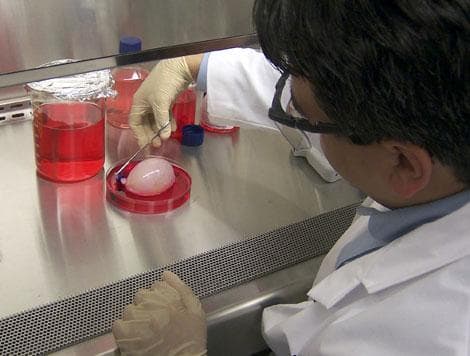Advertisement
Advances in Regenerative Medicine
ResumeBuilding body parts. We look at the startling advance and ethics of regenerative medicine.

Every day, more than one hundred thousand Americans are waiting for organ transplants. Heart, liver, kidney, lung – and tissue and more, for all over the body.
The next frontier is regenerative medicine. Growing human body parts, essentially from scratch.
It’s already happening. Skin. Bladder. More or less “printed” out, layer by layer, with cells blown through an inkjet printer.
The great hope is creating and replacing body parts on demand. The U.S. military is all over it. So are people who want to live forever. So are ethicists.
This Hour, On Point: building body parts, and regenerative medicine.
Guests:
Anthony Atala, director of the Wake Forest Institute for Regenerative Medicine and chair of the urology department at the School of Medicine at Wake Forest University. He led the first team ever to implant a laboratory-grown organ into a human, a bladder, in 2006.
George Annas, chair and professor in the Department of Health Law, Bioethics and Human Rights at the Boston University School of Public Health. His most recent book is “Worst Case Bioethics: Death, Disaster, and Public Health." Annas is a former chair of the Massachusetts Organ Transplant Task Force.
More:
See George Annas chat with Atul Gawande about ethics issues and organ donation.
And watch Wake Forest researchers growing organs in the lab:
This program aired on April 29, 2010.
